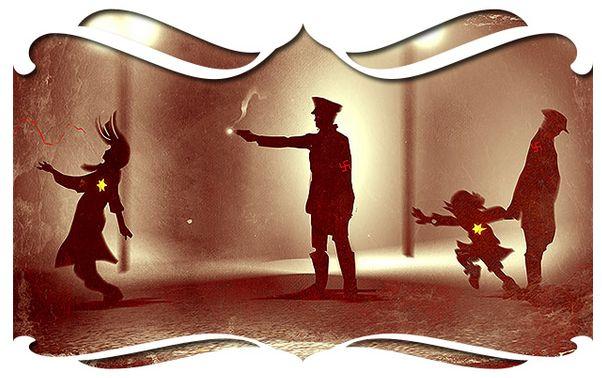“Imagination is the Only Escape,” is a video game that follows the protagonist, a Jewish boy named Samuel, through the Holocaust. Originally slated for release on Nintendo DS and WiiWare, it fell through. Developers are now seeking crowdsourced funds and a smartphone platform.
The New York Times quoted video game blog comments in an article published 2008, when the game was being considered by Nintendo: “Disgusting concept. Some people have no shame,” wrote one video game blog reader. Another called it “pretty creepy.”
The developers argue the game can help youth understand the impacts of the Holocaust, particularly on children.
Samuel creates a world of imagination to cope with the horrors of Nazi occupation in Paris. Grappling with the death of his mother, he makes a deal with a fox that claims to be able to bring her back to life.
Article Continues after the discussion. Vote and comment
[tok id=759003579efef540507ab421ce93d449 partner=1966]
The Indiegogo page created to garner funds for the project explains: “Imagination will not only have users thinking about the people involved, but the goal of the game is to inspire more people to research and learn about the Holocaust. As the old saying goes: ‘Those who don’t know history are doomed to repeat it.’
“Video games are often seen as meaningless distractions for children, but Imagination has the opportunity to blaze a trail for other games that look to tackle controversial, but important topics.”
As of 10 a.m. EDT Tuesday, the project had received about $3,500 funding of its $125,000 goal, with 38 days remaining.
Developer Luc Bernard told Nintendo Life: “Nintendo back in the day just were horrible to me and the sales on WiiWare ended up being terrible for so many fellow developers. You had to spend so much to get things published and ported, and when you are a small indie none of that is justifiable.”
He said if he raises enough money via Indiegogo, he might try a Wii U version as well as a smartphone version of the game.
He told the Verge that Germans and Jews had given him positive feedback on the game. He said: “If I managed to convince a Holocaust survivor and he’s for it, I don’t care about the average Bob on the street.”
Whatever bloggers were saying in 2008, it seems many comments on video game blogs now support the idea behind “Imagination is the Only Escape,” though some remain skeptical.
On Destructoid.com, Djungelurban writes: “Now, when are they gonna put Six Days in Fallujah on Kickstarter? I feel this is a chance for controversial games like these to have a second life and that game would certainly fit the bill.”
Everyday Legend writes: “If done poorly, this will be a stain. If done well, this will be a triumph.”
On Kotaku.com, Rathorlal suggests simulation is key, “insuring that the gameplay isn’t so abstract or gamey, that it insults what it’s trying to do with weird inconsistencies.”
The Censor writes: “Can you play tragedy? I ask this not because I believe that video games are incapable of accessing such serious topics, just the opposite, but ‘gameplay’ I think must take a radical bent if it expects to be an adequate form to address such things as the Holocaust.”





